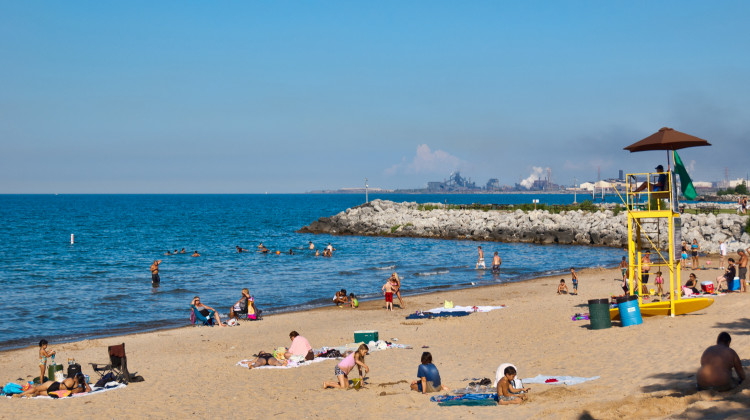Almost every Lake Michigan beach that was tested in Indiana last year had at least one day where high bacteria levels could have threatened swimmers’ health. That’s according to a national report on beach water quality by Environment America.
The report says heavy rains can cause human and animal waste to run off into our waterways and make people sick.
Lee Florea is the assistant director for research at the Indiana Geological and Water Survey. He says combined sewers — which carry wastewater and stormwater — have been an especially big problem in Indiana. They often overflow and send bacteria into waterways.
“The original sewage treatment systems were designed for capacity that couldn’t handle the excess water that was coming from storm events,” he says.
Many communities in the state are designing ways to keep those sewers from overflowing.
About two decades ago, Florea and the Geological and Water Survey released a study that showed that sand can also store bacteria for a period of time and get released again by waves.
John Rumpler is the clean water program director for Environment America. He says there are ways to help absorb polluted water so it doesn’t reach the beach — things like rain barrels, porous pavement, rooftop gardens, and plant buffers along waterways.
“These simple and low cost green infrastructure techniques can prevent this stormwater runoff pollution and prevent sewage treatment plants from being overwhelmed,” Rumpler says.
Of all the Lake Michigan beaches tested in Indiana, Jeorse Park Beach in East Chicago, Indiana, had the most potentially unsafe days last year.
Indiana environmental reporting is supported by the Environmental Resilience Institute, an Indiana University Grand Challenge project developing Indiana-specific projections and informed responses to problems of environmental change.
 DONATE
DONATE









 Support WFYI. We can't do it without you.
Support WFYI. We can't do it without you.